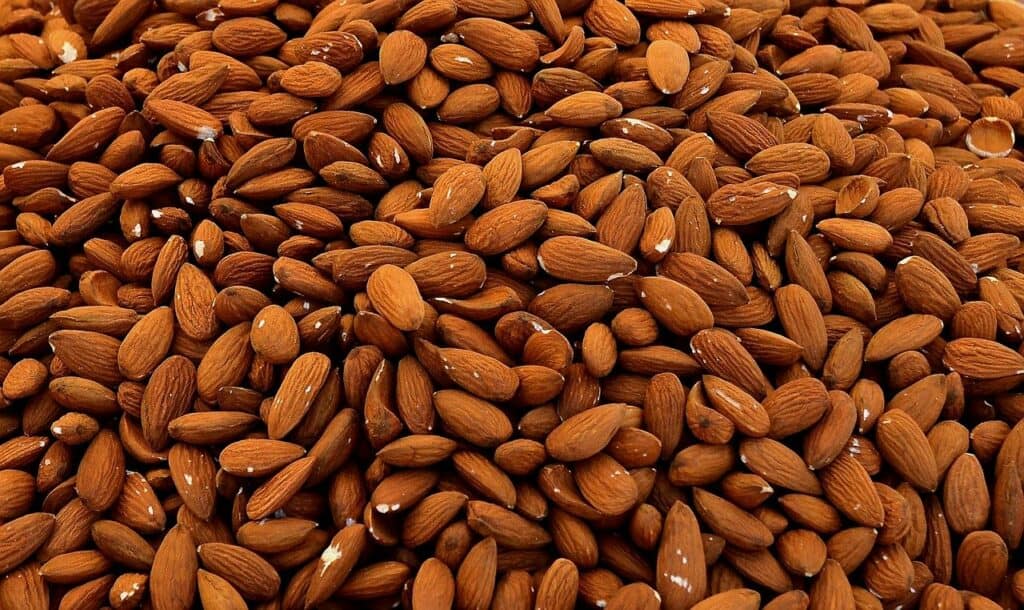A recent survey of 3,000 women age 16-75 revealed that women spend an average of $250 per month on cosmetics and skincare products. Women could trim that cost considerably by looking no further than their local grocery aisle. Foods rich in antioxidants, vitamins, and other nutrients can improve your skin from the inside through the foods we eat.
Foods also improve skin on the outside through cosmetics and skincare products made with these foods. Many food ingredients are so healthy for the skin that they are incorporated into skin creams, serums, scrubs, and other skincare products by the world’s cosmetics and skincare product manufacturers.

Almonds
While most people would classify almonds as a nut, they are actually the stone fruits of a plum-like fruit related to plums and peaches. The almond is in the “top ten” of foods necessary to fight aging. Almonds are very rich in Vitamin E, an essential antioxidant that protects the skin from cancer. They also prevent premature aging from free radicals such as UV rays, pollution, and other damaging skin elements. Vitamin E is vital to skin health, as it neutralizes free radicals, fights inflammation, and protects skin cell membranes by helping them retain moisture. This vitamin creates a barrier on the skin’s surface. Cosmetics manufacturers prize almond extracts because they can seal in moisture to form a protective barrier in the cell membranes. The oil from almonds strengthens dry skin and reduces wrinkles and fine lines.
